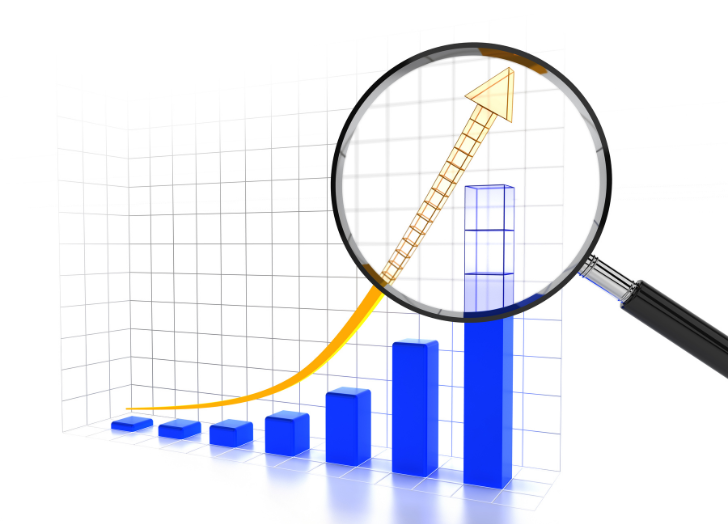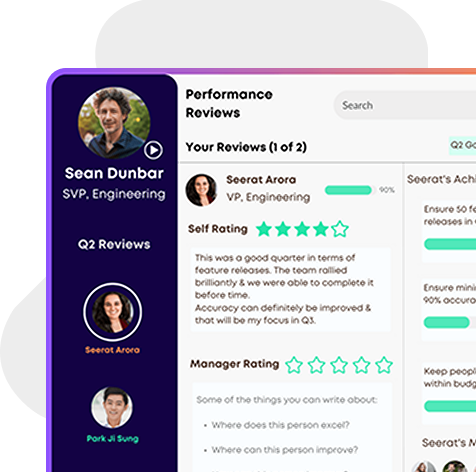

Performance Management Trends in 2025 to Know for Sure

Overview
Performance management has been an integral part of internal talent development. It helps you make the most of your existing workforce or employees. Effectively managing an intelligent workforce helps close the skills gap by reducing the external hiring process and driving productivity.
The eight performance management trends we will be exploring in this blog are:
- Performance is No Longer Annual. It's Always On!
- From Metrics to Meaning
- Manager as Coach, Not Gatekeeper
- Radically Human Reviews
- Decentralized Feedback Loops
- Designing for Trust, Not Control
- The Integration of Performance, Learning, and Engagement
- The Quiet Rise of Micro Goals and Real-Time Alignment
Several top performance management trends are available to address surface-level issues online. However, the focus should be more on systematically addressing the underlying problems. Surface-focused trends are quick to fix or make superficial adjustments. The current trends in performance management should focus on considering the broader context related to motivating, engaging, and developing your employees' careers.
At Klaar, we're not looking for trends. We're listening for signals—profound shifts in how teams work, grow, and align. Our performance management trend emphasizes goal setting as one of the crucial aspects when linked to your organization’s overall objectives. Our tools and resources are best at identifying the root cause of your issues and boosting a culture that is both supportive and conducive to your employee and organizational growth.
In this blog, we decode current performance management trends as clues to what the future of work asks of us.
8 Current Performance Management Trends You Should Be Aware Of For Your Organization
Few current performance management trends, such as those focusing on continuous feedback, technological adoption, holistic evaluations, well-being of employees, and recognition, are trending these days. Here are our top 8 picks of emerging trends in performance management systems:
Trend #1: Performance is No Longer Annual. It's Always On!
One of the most impactful shifts in performance management is the move to an ‘always-on’ approach, where feedback happens continuously, not just once a year. This model gives employees real-time clarity and support, making development an ongoing process rather than a periodic event.
The real shift isn’t just frequency, it’s format. Today’s fast-moving teams need:
- Micro-conversations over monolithic reviews
- Nudges instead of forms
- Feedback in the flow of work, not after the fact
Platforms like Klaar are leading this change, treating performance as a conversation, not an event.
Trend #2: Metrics are Nothing Without Meaning
Another key trend in performance management is the shift from metrics to meaning. While KPIs and OKRs still matter, they're no longer enough on their own. HR leaders are now focusing on the why behind the numbers—connecting performance to purpose, outcomes, and impact.
What this trend looks like:
- Metrics still matter—but meaning matters more
- Focus on purpose alignment and meaningful contributions
- Measuring outcomes, not just output
- Requires narrative goals, qualitative feedback, and human insight
Trend #3: Manager as Coach, Not Gatekeeper
In modern performance management, managers are shifting from judges to coaches. This trend highlights the importance of empowering, guiding, and developing your team, not just evaluating them. When managers act as coaches, they foster critical thinking, skill growth, and high performance that extends beyond the immediate team.
Key traits of this trend:
- Old model: Manager as evaluator and gatekeeper
- New model: Manager as clarity-giver, unblocker, and coach
- Coaching is now a must-have leadership skill
- Systems must support this with:
- Guided questions
- Suggested feedback prompts
- Peer and upward feedback channels
This isn’t just a trend, it’s a cultural reset in how we lead.
Trend #4: Radically Human Reviews
Trend #4 marks a shift from rigid annual reviews to structured, real-time feedback focused on both performance and well-being. It's not just about what employees achieve, but how they’re doing as humans at work. This trend fosters a culture where feedback feels safe, supportive, and holistic.
Key Features of Trend #4:
- Greater focus on mental health, burnout, and emotional intelligence
- Performance includes emotional resilience and energy management
- Reviews now make space for:
- Emotional reflection
- Work-life balance
- Context-driven conversations
Klaar enables this shift with self-reflection tools that go beyond goals, supporting whole-person performance.
{{cta-1}}
Trend #5: Decentralized Feedback Loops
Trend #5 reflects a major shift from top-down evaluations to a more collaborative, multi-source feedback culture. Today’s performance management isn’t just about what leaders see, it’s about what peers, customers, and teams experience. This approach creates a system of continuous learning, timely recognition, and shared accountability.
Key Features of Trend #5:
- Feedback is no longer one-way—it flows in all directions:
- Peer-to-peer
- Self-to-manager
- Team-to-leader
- 360° feedback is evolving from a tool to a cultural norm
- Employees are empowered with visibility, voice, and shared ownership of performance
Platforms like Klaar help decentralize performance, making feedback inclusive, timely, and actionable.
Trend #6: Designing for Trust, Not Control
Trend #6 highlights a shift from control-based performance systems to trust-based approaches rooted in transparency, autonomy, and shared accountability. Instead of managing performance through oversight, today’s systems focus on enabling open communication, clear goals, and meaningful development, fueling higher engagement and a healthier work culture.
Key Features of Trend #6:
- Traditional focus: Control, ranking, and rewards
- Modern focus: Trust, transparency, and growth
- Key enablers:
- Shared visibility into goals
- Real-time feedback history
- Clear development pathways
In short, performance design is becoming culture design.
Trend #7: The Integration of Performance, Learning, and Engagement
Trend #7 in performance management is all about integrating performance, learning, and continuous analysis. It moves beyond isolated evaluations to create a connected ecosystem, where performance goals link directly to development, and feedback fuels real learning. The result? A culture of growth, self-awareness, and higher engagement.
Key Features of Trend #7:
- Performance is no longer siloed—it’s interconnected
- Smart systems now connect:
- Performance goals → Development goals
- Feedback → Learning recommendations
- Engagement data → Manager effectiveness
Platforms like Klaar are building performance layers that connect clarity with capability, making growth measurable and meaningful.
Trend #8: The Quiet Rise of Micro Goals and Real-Time Alignment
This trend marks a shift from static annual reviews to real-time performance management, where goals, feedback, and alignment happen in short, continuous cycles. In fast-moving workplaces, clarity doesn’t last long. Micro goals and regular check-ins help teams stay focused, agile, and aligned.
Key Features of Trend #8:
- Long-term OKRs are now supported by:
- Weekly themes
- Sprint goals
- Milestone check-ins
- Real-time alignment keeps performance responsive, not reactive
Klaar is designed for this rhythm, enabling micro-adjustments over macro-corrections through weekly check-ins and continuous feedback.
{{cta-2}}
The Signals to Watch in the Next 12–24 Months
This year, the performance management system will focus on aligning the goals of individual employees with those of the organization. This alignment is crucial for prioritizing accountability and gradually shifting to a more agile and project-dependent approach. It indicates a move from annual evaluations towards more realistic feedback.
Necessary Signals to Keep a Watch on in the Next 12-24 Months
- Trends on the horizon:
- Predictive performance intelligence
- AI-enabled growth coaching (not generic AI summaries)
- Narrative-based performance scoring
- Equity-aware calibration models
- But what is the best trend to follow? Listening deeply to your people
- The real trend isn't technology—it's trust, clarity, and courage.
Move Beyond Metrics. Make Reviews Human with Klaar
Performance is no longer about just metrics. Klaar helps you enable clarity, feedback, and growth across your team, week by week, not year by year.

Modern Performance Starts Here
Build a system where performance, feedback, and culture work together. Klaar helps you track goals, enable reflection, and power growth across your organization.

Wrapping Up
The emerging performance management trends are witnessing a paradigm shift to the realistic feedback system and ongoing assessments in place of annual evaluations. Today, these reviews are more focused on ensuring the well-being of the employees along with their professional development. These trends aren't bells and whistles—they're signals of what people want from work today: purpose, feedback, visibility, and fairness. Performance management is no longer about enforcing the concept of being productive now and then. Today, it is more about enabling employees to be their best in their work and lives. This balance is quite crucial for attaining clarity, dignity, and growth. At Klaar, we're building for that world, not the one we left behind.
.svg)
.svg)




.svg)

.svg)